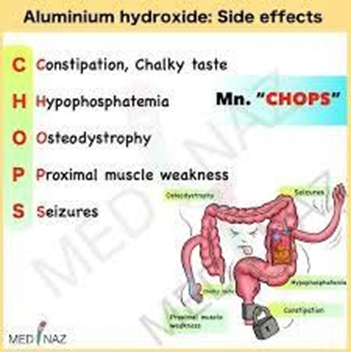A nurse is caring for a client who has chronic renal disease and is receiving therapy with epoetin alfa. Which of the following laboratory results should the nurse review for an indication of a therapeutic effect of the medication?
The erythrocyte sedimentation rate (ESR)
The hematocrit (Hct)
The leukocyte count
The platelet count
The Correct Answer is B
A. The erythrocyte sedimentation rate (ESR) is a nonspecific marker of inflammation and is not used to assess the therapeutic effect of epoetin alfa.
B. The hematocrit (Hct) measures the proportion of red blood cells in the blood. Epoetin alfa stimulates the production of red blood cells, leading to an increase in hematocrit levels, indicating a therapeutic effect of the medication.
C. The leukocyte count measures the number of white blood cells in the blood and is not relevant for assessing the therapeutic effect of epoetin alfa.
D. The platelet count measures the number of platelets in the blood and is not relevant for assessing the therapeutic effect of epoetin alfa.
Nursing Test Bank
Naxlex Comprehensive Predictor Exams
Related Questions
Correct Answer is B
Explanation
A. Calcium supplements are not associated with peptic ulcer formation.
B. Flank pain can be a symptom of kidney stones, which can occur due to excessive calcium supplementation.
C. Pancreatitis is not typically associated with calcium supplementation.
D. Hepatitis is not typically associated with calcium supplementation.

Correct Answer is A
Explanation
A. Constipation is a common adverse effect of aluminum hydroxide, an antacid often used to bind phosphate in patients with renal failure to prevent hyperphosphatemia.
B. Muscle spasms are not typically associated with aluminum hydroxide.
C. Metallic taste is not a common adverse effect of aluminum hydroxide.
D. Headache is not a common adverse effect of aluminum hydroxide.

Whether you are a student looking to ace your exams or a practicing nurse seeking to enhance your expertise , our nursing education contents will empower you with the confidence and competence to make a difference in the lives of patients and become a respected leader in the healthcare field.
Visit Naxlex, invest in your future and unlock endless possibilities with our unparalleled nursing education contents today
Report Wrong Answer on the Current Question
Do you disagree with the answer? If yes, what is your expected answer? Explain.
Kindly be descriptive with the issue you are facing.
